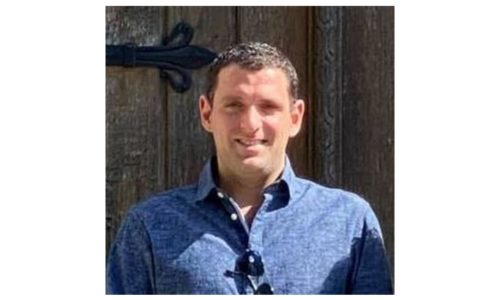In a series of interviews with colleagues from the Energy One Group, we talk to Oleg Bourov, Senior Operations Officer with Energy One Europe. He is based within Energy One’s Belgium office.
What can you tell us about your role within EGSSIS and Energy One Europe?
I’ve been working at the company for almost 12 years; my role has constantly evolved as I became more experienced and grew from junior to senior operator.
At the start the focus was mostly on operational execution. Nowadays as a Senior, I’m responsible for taking on more complex tasks and additional responsibilities such as training new hires.
What does the job of a ‘Gas and Power Operations Officer’ entail?
In short, we ensure client portfolios remain balanced 24/7. We work in three shifts, each with their own specific focus – AM (6-14), PM (14-22) or Night (22-6). There’s at least one of us manning the operations desk at all times.
First of all, we have to ensure the matching for our customers, and that their counterparties agree with the positions of our clients. On top of that we also do capacity booking, balancing of the portfolio across gas and power grids, follow-up of re-nominations, trading, etc.
Meanwhile we also get requests or questions from clients via calls, emails or service desk tickets. We analyse these questions and assign them to the right person or team to solve them, or to investigate the issue ourselves if it’s something in our remit.
Last but not least, we sometimes get instructions from clients to do trades or schedule positions on different platforms.
To summarize, each shift has a different focus, for example in the evening there will be much more attention on solving mismatches before the end of the gas- or power-day. This diversity keeps the job challenging and interesting.
How do you juggle the responsibilities of being the first line of contact for clients while keeping portfolios balanced?
I would summarize it as: “Prioritize, prioritize, prioritize” – time management is very important. For example, you must keep in mind nomination deadlines for each grid. There may be urgent activation requests for ‘flexible assets’ which we have to activate or de-activate within 10 minutes. Therefore, you always must be focused and alert, and aware of the ‘flow’ during each shift so that you don’t get surprised by encroaching deadlines.
In the beginning it’s not always easy; you must learn the flow of deadlines and also which team can solve each type of incoming request. There are no shortcuts here, this is something you learn through experience and learning on the job. Obviously, we train new hires very well and they also have a senior operations expert as a back-up during their first few months.
What have you learned as the most experienced operations officer in the team?
You really grow throughout your tenure as a gas and power operations officer and with time comes experience and insight. This means I’ve learned to manage my time and execute tasks and requests in the optimal order.
Furthermore, I have learned valuable business skills such as: how to reply properly to emails, how to professionally handle phone calls, and how to explain things to customers. If there are issues or if someone from the team has made a mistake, I have learned that we should take accountability and embrace transparency towards our customer as a team.
Sweeping mistakes under the rug may work once, but it is never a long-term solution to keep the customer relationship healthy, in the end mistakes come to light. This is not only a personal learning but something I’ve seen across the whole team, and I’m proud that our team is taking ownership in this. We have learned to take responsibility for each other’s mistakes and to communicate this in a timely manner with clients to come to a solution.
Do you see the impact of the higher gas and power prices in your role?
Yes, in several ways actually. Customers are requesting more trading activities than before and we have to keep a closer eye on how the market behaves within-day.
Clients also wait till later in the evening to see how the market settles before committing to certain trades or positions, so we have to be alert and responsive to meet the deadline.
Another example is that on NBP (the British Gas exchange) we must monitor how the market is closing at night. So, people doing the night shift have to take into account more parameters, such as the settlement price, to see if the market closes short or long, and so forth. Based on these outcomes we have to take different actions for our clients to balance their portfolio.
We also see more customers leave their imbalances overnight on the market. If the client’s portfolio is long and the market is short they can benefit from a cash-out in the market at imbalance prices, if these prices are better than the prices on the exchange.
Market volatility also means we have to follow-up more often with the portfolio managers and traders of our clients. An example of this would be when price limits given to us at hand-over are no longer valid, due to price fluctuations. On extreme days the price limits will have to be reviewed on a quarter-hourly basis even, so you get a constant feedback loop with your contacts on the client’s side.
Finally, I also noticed some companies are consolidating their activities. In the past they might have been active on a dozen hubs or so, and now they focus only on the most liquid hubs or the grids where they have a larger presence.
What excites you about the coming years at Energy One?
I believe becoming a part of the Energy One Group is very beneficial for the team. Operationally speaking I see a lot of synergies between the teams in Belgium and France.
Firstly, I noticed we are learning a lot from each other’s experience. With the team in Belgium historically growing in the gas markets, and the team in France being well versed in power, it’s a great match.
Secondly, I have seen that the cross-pollination of ideas improves the SaaS solutions we offer. Because these platforms are an integral part of our job, we obviously welcome these improvements.
Being a part of a bigger international group also means we have more support, bigger budgets, and we can compete in larger projects.
Furthermore, it’s really good to have even more global coverage due to our overlap with the dispatchers based in Australia. They could, over time, take on some responsibilities from our night shift, and vice versa.
This will allow more flexibility in the shift planning and is a relief for those colleagues who aren’t a fan of night shifts. However, I personally don’t have an issue with working at night.
To summarize, the fact that Energy One is building a global dispatching team with a follow-the-sun approach is very exciting!
This brings us to our last question Oleg: which shift is your favourite and why?
I would say the AM shift, starting at 6 in the morning and ending at 2 in the afternoon. This shift is great for work-life balance: I can pick-up the kids from school and ferry them to their numerous after-school activities, do some shopping, cooking, and so forth.
Thanks for your time and sharing your experience, Oleg!
Join The Team
If you are interested in joining Energy One’s operations teams, please visit our careers page.


